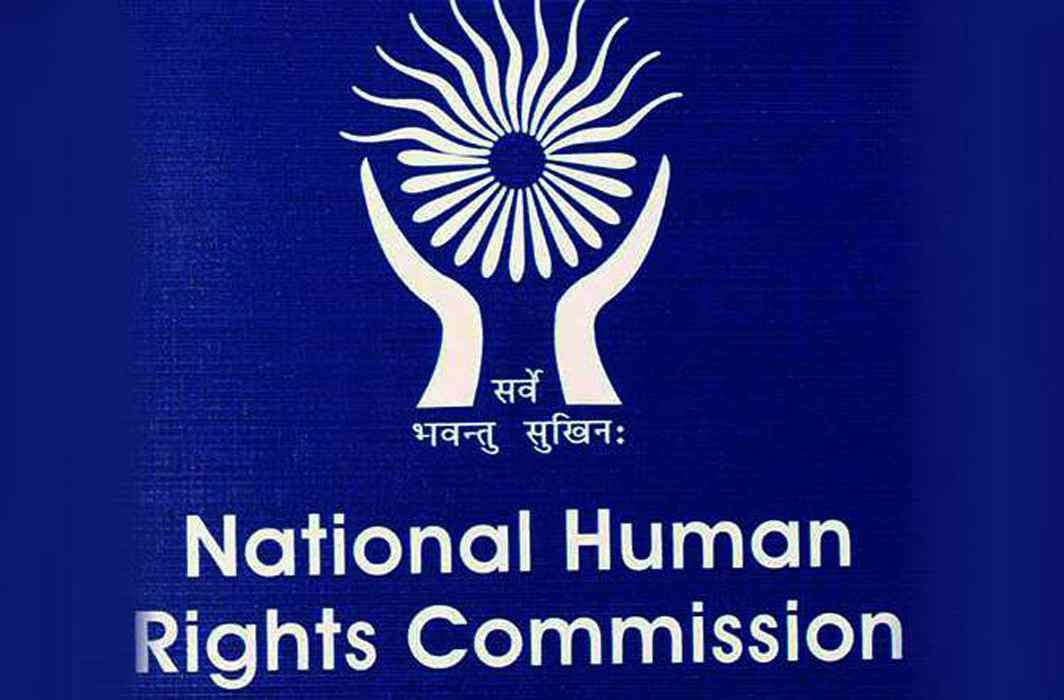The National Human Rights Commission (NHRC) on Friday issued notice to the Union of India, state governments and Union Territory (UT) administrations, directing them to file an action taken report within three months on steps taken to prevent suicide attempts by prisoners in judicial custody.
Noting that most of the unnatural deaths of prisoners occurred due to suicide, the Commission said the barracks as well as the toilets, where most suicides took place in jails across the country, should be kept free of objects, which can be used for hanging, such as iron rods/grills, fans, hooks or similar objects.
It recommended the authorities to focus on the mental well-being of these outlaws, besides encouraging interaction with their families by way of telephonic communication and visits by family members.
Writing a letter to Chief Secretaries of all the States and Administrators of all Union Territories with a copy to the Ministry of Home Affairs, the Bureau of Police Research and Development, and Director Generals of all jails across the country, NHRC Secretary General Devendra Kumar Singh sought implementation of NHRC’s recommendations on the issue.
The letter advisory directed the Centre, States and UT Administrations to focus on 11 key areas for action. These include filling up the vacancies and augmenting the staff strength, training prison staff and prisoners, screening their mental health at the admission stage, supervision and monitoring at-risk prisoners, creating a collaborative framework for mitigation, issue of addiction among prisoners, compliance with relevant statutory provision, prison housekeeping, strengthening visitor system and improving prison architecture & its environment.
The Commission further recommended the authorities to ensure that abrasive and corrosive chemicals such as phenyl and acids, used for cleaning toilets and surfaces, were kept beyond the reach of prisoners.
It directed the prison authorities across the country to ensure that tools used for building maintenance such as ropes, glass, wooden ladders and pipes were kept in safe custody of the concerned prison staff.
The Commission recommended regular check and vigil on bed sheets and blankets of inmates so as to ensure that these were not used to make ropes to attempt suicide.
It directed the authorities to identify the place or area in prison, which was prone to such acts, and take corrective actions in this regard, such as installing CCTVs.
The NHRC Secretary said every prisoner should undergo mental health screening as part of his/her initial health screening report.
It said the existing vacancies of prison staff should be filled up, particularly those of Prison Welfare Officers, Probation Officers, Psychologists and Medical Staff, adding that the strength should be suitably augmented to include mental health professionals.
The Commission directed the authorities to ensure that a component of mental health literacy was included in the basic training of prison staff with periodical refresher courses.
It recommended training the prison staff of each barrack in providing Cardiopulmonary Resuscitation & First Aid (CPR), particularly for handling attempted hanging, bleeding through self-inflicted cuts, or on ingesting toxic substances.
The Commission further directed regular observation by prison staff and assignment of a prisoner ‘buddy’ trained in psychological first aid.
It said adequate telephone numbers for contact with friends or family of the prisoner should be ensured in accordance with relevant regulations.
Family members of the at-risk inmates must be contacted to give them the required assurance, counseling and mental support. Their visits should be encouraged to provide emotional support to the prisoners, it added.
NHRC suggested the authorities to implement the gatekeeper model devised by the World Health Organisation. Under the model, selected jailmates were imparted training to identify prisoners at risk of suicide.
In order to tackle the issue of addiction among the jailmates, the Commission suggested visits by mental health care professionals and de-addiction experts.
The Commission recommended imparting life skill-based education and activities for the prisoners such as yoga, sports, crafts, drama, music and dance, apart from suitable spiritual and optional religious instructions to channelise their energies positively and occupy their time. It suggested taking help of reputed NGOs for the purpose.
It further recommended increasing facilities for upskilling, vocational guidance and means for financial independence. NHRC suggested linking long-term skilled prisoners with government schemes for entrepreneurship.


